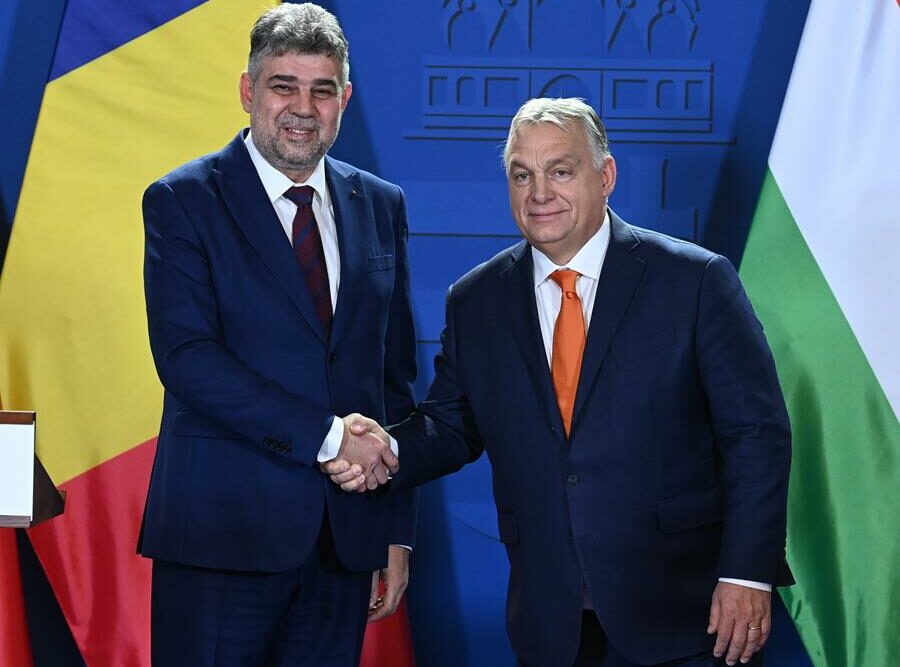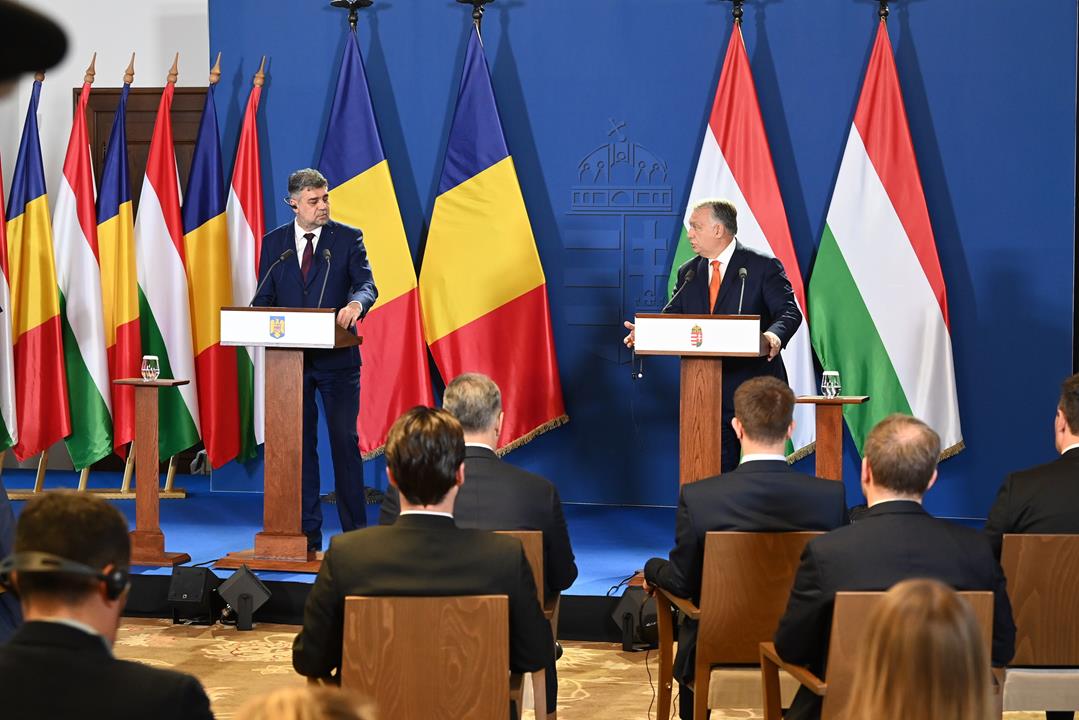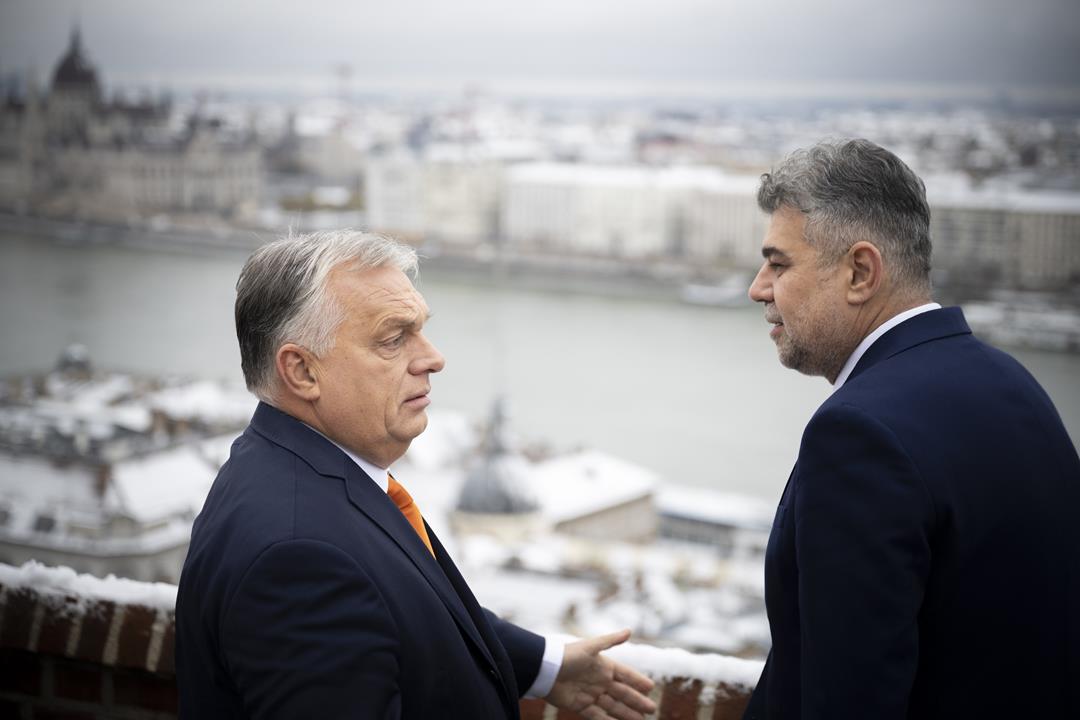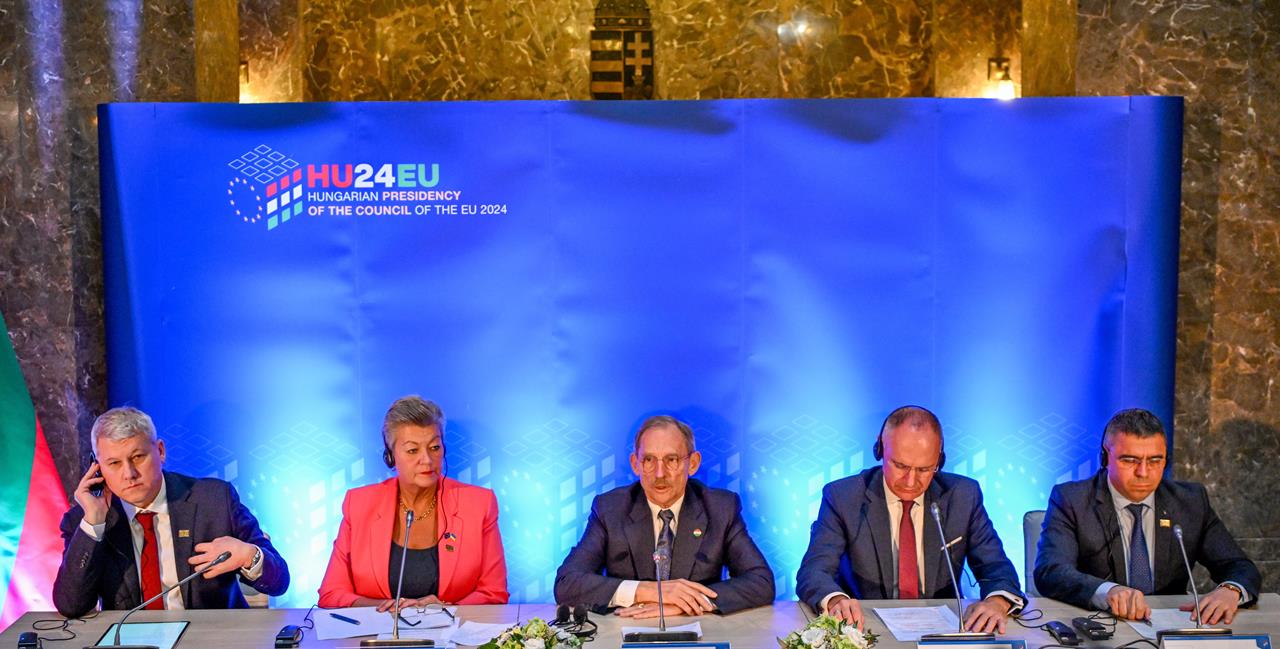Hungary’s EU presidency will lead Romania, Bulgaria into the Schengen Zone – Orbán supports both states, UPDATED

European Union interior ministers will vote on Dec 12 regarding a Hungarian proposal to allow Romania and Bulgaria to join the Schengen agreement, Prime Minister Viktor Orbán said after talks with Romanian counterpart Marcel Ciolacu.
From 2025, the Schengen Zone will include Romania and Bulgaria
Orbán told a press conference that important talks had been held and were still under way in Budapest, with the interior ministers of Austria, Bulgaria, Hungary and Romania discussing the enlargement of the Schengen area to include Romania and Bulgaria.
European Union interior ministers will vote on Dec 12 regarding a Hungarian proposal to allow Romania and Bulgaria to join the Schengen agreement, Prime Minister Viktor Orbán said after talks with Romanian counterpart Marcel Ciolacu.
Hunor Kelemen, the President of the Alliance of Hungarians in Romania (RMDSZ), wrote in a Facebook post that border control will end between Romania and Hungary from 1 January:
Orbán told a press conference that important talks had been held and were still under way in Budapest, with the interior ministers of Austria, Bulgaria, Hungary and Romania discussing the enlargement of the Schengen area to include Romania and Bulgaria.
Orbán noted that Hungary was currently fulfilling the rotating presidency of the Council of the European Union. “When we last held talks with the prime minister in Bucharest, we were in agreement that the Hungarian presidency must be definitely used to speed up the process of Romania’s Schengen accession,” he added.

Current situation unjust, says Orbán
Orbán said the current situation towards Romania was unjust as the country had made serious efforts to meet Schengen conditions in recent years and had done so for quite some time.
Orbán welcomed the fact that during Friday’s talks, the approach through illegal migration had been chosen. The interior ministers discussed in Budapest that illegal border crossings must be reduced significantly and the fight against illegal migration must be strengthened, he added.
Orbán said that the participants at the talks established that both Romania and Bulgaria had made “fantastic progress in this regard” and the Hungarians, the Austrians, the Romanians and the Bulgarians were in agreement that all obstacles were removed that had prevented Romania’s Schengen accession.
He added that it had been agreed at Friday’s talks that all four countries would work on enabling Romania to become a full member of Schengen, not only by air but also over land, from Jan 1.
The decision requires the assent of all interior ministers of the EU, and it will be made in Brussels on Dec 12, Orbán said. The Hungarian presidency will make a proposal on the previous day based on today’s meeting, he added.

Bilateral economic ties with Romania “fantastic”
Orbán said he expected Budapest” to be famed’ for hosting the talks “that removed the last obstacle” and paved the way for the formal decisions.
If all goes to plan, drivers will not be required to stop at the Hungary-Romania border, he said, adding that “it’ll be a great moment for us all”.
The prime minister said he had also discussed bilateral issues with Ciolacu. He called bilateral economic ties “fantastic”, with bilateral trade “continuously increasing both in volume and value.” The two parties also agreed that investment in the other country was crucial; they will further support that Romanian goods are sold on the Hungarian market and Hungary exports its products to Romania, Orbán said.
Economic cooperation and Romania’s Schengen entry are especially important for communities on either side of the border, Orbán said, adding that the situation for those people was “unfair”. “Local communities there will at last be in a position to build their ties as required by the natural order of life,” he added.
With Romania’s Schengen entry, several roads crossing the border, so far used at weekends only, will open, Orbán said.
Meanwhile, the prime minister thanked ethnic Hungarian party RMDSZ for its efforts towards Romania’s Schengen accession.
Illegal border crossings must be reduced significantly
Orbán noted that Hungary was currently fulfilling the rotating presidency of the Council of the European Union. “When we last held talks with the prime minister in Bucharest, we were in agreement that the Hungarian presidency must be definitely used to speed up the process of Romania’s Schengen accession,” he added.
Orbán said the current situation towards Romania was unjust as the country had made serious efforts to meet Schengen conditions in recent years and had done so for quite some time.
Orbán welcomed the fact that during Friday’s talks, the approach through illegal migration had been chosen. The interior ministers discussed in Budapest that illegal border crossings must be reduced significantly and the fight against illegal migration must be strengthened, he added.

Orbán said that the participants at the talks established that both Romania and Bulgaria had made “fantastic progress in this regard” and the Hungarians, the Austrians, the Romanians and the Bulgarians were in agreement that all obstacles were removed that had prevented Romania’s Schengen accession.
He added that it had been agreed at Friday’s talks that all four countries would work on enabling Romania to become a full member of Schengen, not only by air but also over land, from Jan 1.
The decision requires the assent of all interior ministers of the EU, and it will be made in Brussels on Dec 12, Orbán said. The Hungarian presidency will make a proposal on the previous day based on today’s meeting, he added.
Last obstacle removed
Orbán said he expected Budapest” to be famed’ for hosting the talks “that removed the last obstacle” and paved the way for the formal decisions.
If all goes to plan, drivers will not be required to stop at the Hungary-Romania border, he said, adding that “it’ll be a great moment for us all”.
The prime minister said he had also discussed bilateral issues with Ciolacu. He called bilateral economic ties “fantastic”, with bilateral trade “continuously increasing both in volume and value.” The two parties also agreed that investment in the other country was crucial; they will further support that Romanian goods are sold on the Hungarian market and Hungary exports its products to Romania, Orbán said.
Economic cooperation and Romania’s Schengen entry are especially important for communities on either side of the border, Orbán said, adding that the situation for those people was “unfair”. “Local communities there will at last be in a position to build their ties as required by the natural order of life,” he added.
With Romania’s Schengen entry, several roads crossing the border, so far used at weekends only, will open, Orbán said.
Meanwhile, the prime minister thanked ethnic Hungarian party RMDSZ for its efforts towards Romania’s Schengen accession.
Interior minister Pintér: Schengen accession of Bulgaria, Romania ‘one step closer’
The full Schengen membership of Bulgaria and Romania is “another step closer”, Sándor Pintér, the interior minister, told a press conference of interior ministers on Friday.
He told the joint press conference with Austrian counterpart Gerhard Karner, Bulgarian counterpart Atanas Ilkov, Romanian counterpart Catalin Predoiu and Ylva Johansson, the European commissioner for home affairs, that in order to complete the process another joint package needs to be put together to ensure and enhance the security of the European Union and the two candidate countries. The package will be finalised on Dec 11 and 12, he added.
Part of the decision will involve jointly setting up a contingent on the Turkish-Bulgarian border with the involvement of at least 100 border police, he said.
Pintér said that Hungary will ensure that in addition to the full appointment of 100 border police, they will be supplied with sufficient equipment to effectively protect the Bulgaria-Turkyie border.
“It is clear that there is an opportunity now to conclude this matter by Dec 31, this year,” Pintér said.
Karner called Friday’s border protection package “a very important step”, and praised Romania’s and Bulgaria’s efforts over the last two years to bolster border protection. He said that ever since the Netherlands and Austria vetoed their Schengen membership in 2022, the number of illegal migrants apprehended on their eastern borders has dropped from 70,000 to 3,000. He added that under Friday’s agreement, Austria will uphold its border controls.
Ilkov said his country had allocated significant amounts of funding towards strengthening its border with Turkiye which has led to a significant drop in the number of illegal border crossings.
Predoiu said Romania had reached its goal with today’s Budapest agreement, and his country’s Schengen membership would boost the bloc’s security. Romania, too, had devoted significant personnel and financial resources towards meeting the Schengen criteria, he added.
The Romanian and Bulgarian ministers thanked Hungary and Pintér for supporting their Schengen accession process.
Johansson said Romania and Bulgaria’s accession to the Schengen area in January was a realistic goal given the steps they had taken in meeting the accession criteria. The commissioner congratulated Pintér, saying that the success of today’s meeting was owed in great part to his personal commitment.
UPDATE: Full Schengen membership of Bulgaria, Romania fulfils a priority of presidency
Bulgaria and Romania’s full membership in the Schengen Area would fulfil a priority of the Hungarian presidency of the European Union, the minister for EU affairs said on Facebook late on Friday. At a “meeting of historic significance” in Budapest on Friday, the interior ministers of Austria, Hungary, Romania and Bulgaria reviewed the results of their joint fight against illegal migration, and “concluded that there is no obstacle to the full Schengen membership of Romania and Bulgaria,” Janos Boka said in a video on Facebook. The official decision may follow at a meeting of EU interior ministers on December 12, Boka said, “and we are all looking forward to the full Schengen membership of Bulgaria and Romania from January 1, 2025.”
Read also:

